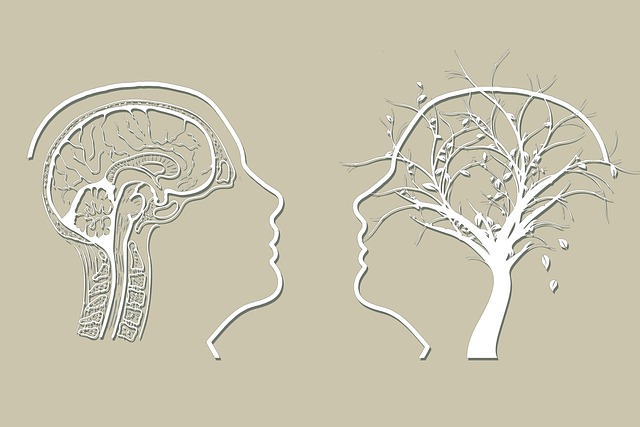In today's demanding healthcare environment, Lone Tree Stress Management Therapy is a crucial tool for mitigating professional burnout and enhancing mental well-being among mental health practitioners. This comprehensive program combines tailored strategies like mindfulness and cognitive-behavioral techniques with emotional healing processes to foster self-awareness and healthy coping mechanisms. Integrating Social Skills Training further benefits clients by promoting meaningful connections and improving interpersonal interactions. Through structured sessions focused on Mind Over Matter principles, the therapy builds resilience and equips individuals with tools to manage stress and anxiety effectively, leading to improved outcomes in daily life. Continuous evaluation using measurable outcomes and client feedback ensures the program's relevance and impact in addressing modern stress-related concerns.
In today’s fast-paced world, Lone Tree residents face unique challenges that demand effective stress management strategies. This article explores the growing need for mental wellness coaching programs tailored to the specific demands of this community. We delve into designing interventions that foster resilience and provide practical tools for coping with stress. Additionally, we discuss implementing and evaluating these programs’ success, emphasizing the significance of Lone Tree Stress Management Therapy in enhancing overall well-being.
- Understanding the Need for Lone Tree Stress Management Therapy Programs
- Designing Effective Mental Wellness Coaching Interventions
- Implementing and Evaluating the Success of Stress Management Coaching Programs
Understanding the Need for Lone Tree Stress Management Therapy Programs

In today’s fast-paced and often stressful world, the need for effective Lone Tree Stress Management Therapy programs has become increasingly vital. The well-being of mental health professionals is a critical aspect that is often overlooked within the healthcare industry. With high-pressure work environments and demanding clients, it’s no surprise that many professionals are at risk of experiencing burnout and related mental health issues.
Thus, implementing structured Lone Tree Stress Management Therapy can act as a powerful tool for risk management planning. These programs aim to promote emotional well-being, providing professionals with the necessary skills to manage their mood and stress levels effectively. By embracing such initiatives, we can foster a healthier work environment, enhance job satisfaction, and ultimately improve the quality of care provided by mental health professionals.
Designing Effective Mental Wellness Coaching Interventions

Designing effective mental wellness coaching interventions requires a multifaceted approach that addresses the holistic needs of individuals seeking support. Lone Tree Stress Management Therapy emphasizes tailored strategies, incorporating techniques such as mindfulness practices, cognitive-behavioral techniques, and emotional healing processes to empower clients in managing stress and anxiety effectively. The program’s success hinges on fostering self-awareness exercises and promoting healthy coping mechanisms, enabling participants to navigate life’s challenges with greater resilience.
Integrating Social Skills Training within the coaching framework further enhances the benefits. By facilitating meaningful connections and improving interpersonal interactions, these sessions encourage a supportive network that is vital for emotional well-being. The ultimate goal is to equip individuals with the tools and confidence to prioritize their mental health, ensuring long-lasting positive outcomes in daily life.
Implementing and Evaluating the Success of Stress Management Coaching Programs

Implementing and evaluating stress management coaching programs is a multifaceted process that goes beyond mere intervention. It involves integrating Lone Tree Stress Management Therapy techniques into structured coaching sessions, focusing on empowering individuals to adopt Mind Over Matter principles. This approach aims to foster resilience by teaching coping skills development, enabling clients to navigate life’s challenges with greater equanimity.
Effective evaluation requires measurable outcomes and qualitative feedback. Assessing the success of these programs can involve tracking reductions in stress levels, improvements in emotional well-being, and enhanced coping strategies as reported by participants. Additionally, collecting client testimonials and hosting focus groups can provide valuable insights into the perceived benefits and areas for improvement within the Mental Wellness Podcast Series Production framework. This iterative process allows coaches to refine their practices, ensuring that the programs remain relevant and impactful in addressing modern stress-related concerns.
Lone Tree stress management therapy programs have emerged as a vital tool for enhancing mental wellness. By designing effective interventions that cater to individual needs, we can significantly improve overall well-being. Implementing and evaluating these coaching programs ensures their success and adaptability. Through tailored support, education, and coping strategies, Lone Tree residents can navigate life’s challenges with resilience and tranquility.














